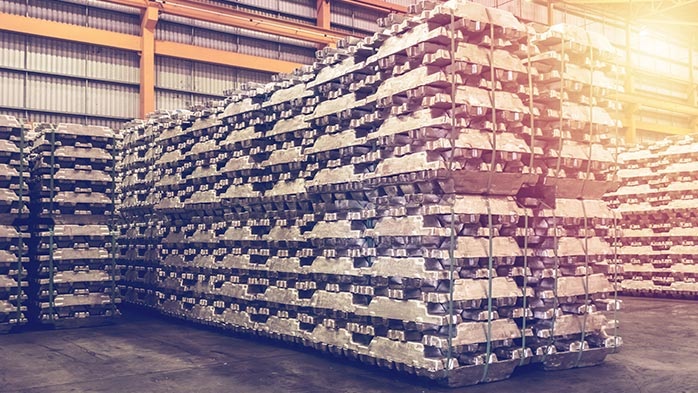Growth Markets

September 9, 2025
SMU Steel Summit: Aluminum Dynamics' Mississippi plant ramping up
Written by Stephanie Ritenbaugh
Aluminum Dynamics Inc. (ADI) is continuing to ramp up its Mississippi mill after shipping its first flat-rolled coils in June.
Barry Schneider, president and COO of Steel Dynamics, ADI’s parent company, spoke at Steel Market Update’s Steel Summit in Atlanta about the facility, which is a stone’s throw away from another SDI’s steel mill and biocarbon plant in Columbus, Mississippi. Steel Market Update is the sister publication of AMU.
“It’s quite a facility,” Schneider said. “It’s every bit as big as any steel mill we have, and the team that’s been put together is incredible.”
Three of the four cast houses are fully commissioned and producing 3000, 5000 and 6000 series ingots for industrial, can sheet, and automotive sectors.
“The hot rolling commissioning is going very well,” Schneider said. “They have cold rolling assets that they’re commissioning and they’re getting ready to do some of the annealing downstream stuff.”
Schneider noted that compared to commissioning its steel mills in Sinton, Texas, the ADI facility is a batch process, making start up a little easier.
“When you look at our Sinton plant, melting, refining, casting and hot rolling are all connected, so if you have a glitch anywhere, that whole big machine shuts down,” Schneider said. “It’s the strength of why we’re efficient and why we can do things very quickly and we can minimize inventories. Mini mills are not just technology. It’s a business mindset. But when you’re starting new stuff that can be interesting.
“With aluminum, it’s a batch processes, because the process requires it,” he added. “You need to inspect that and learn certain things along the way to make sure you have the right quality. I think that will help. That’s why starting it up is much more compartmentalized, if you will.”
Costs are another consideration.
“The cost of material is something considerable, so we’re very deliberate about how we commission,” Schneider said.
In July, the company said it expects to end the year with a utilization rate at its Columbus plant between 40% and 50%, and exit 2026 at 75%. The rolling mill represents a $2.7 billion investment and is expected to produce 650,000 metric tons (t) of flat-rolled products per year.








